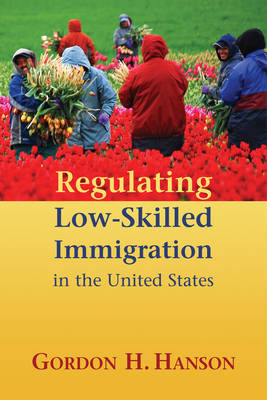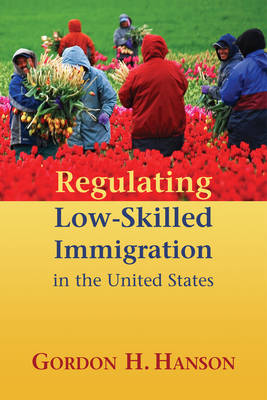
- Afhalen na 1 uur in een winkel met voorraad
- Gratis thuislevering in België vanaf € 30
- Ruim aanbod met 7 miljoen producten
- Afhalen na 1 uur in een winkel met voorraad
- Gratis thuislevering in België vanaf € 30
- Ruim aanbod met 7 miljoen producten
Zoeken
Omschrijving
With 11.9 million undocumented residents in the United States and illegal entrants accounting for nearly half of the low-skilled foreign workforce, there is widespread agreement that the current U.S. immigration system is broken. Past reform agendas have emphasized strengthening border security, increasing the number of visas for foreign guest workers, and defining a path to legal residence for illegal immigrants already living in the country. When the Obama administration addresses immigration reform-as it has promised to do before 2012-should it pick up where previous reform proposals left off? In Regulating Low Skilled Immigration in the United States, Gordon H. Hanson contends that efforts to curtail illegal entry will fail unless policymakers design a system that is responsive to market signals that encourage individuals to move from low-wage labor markets in regions such as Central America to the more robust labor market in United States. On the whole, immigration benefits the U.S. economy by raising national income and making domestic capital more productive. However, increasing the low-skilled population may also increase the net tax burden on native residents. Successful reform depends on attracting immigrants with strong incentives to be productive laborers who will not place excessive demands on public services. Illegal immigration, as regulated by market forces, largely satisfies these criteria, but at the cost of undermining the rule of law and leaving the immigrant population unprotected. To create a better system for managing low-skilled immigration, Hanson argues, Congress should preserve the features of the current regime that serve the country well and strip away the features that corrode civil society and harm immigrants.
Specificaties
Betrokkenen
- Auteur(s):
- Uitgeverij:
Inhoud
- Aantal bladzijden:
- 60
- Taal:
- Engels
- Reeks:
Eigenschappen
- Productcode (EAN):
- 9780844743707
- Verschijningsdatum:
- 16/10/2010
- Uitvoering:
- Paperback
- Formaat:
- Trade paperback (VS)
- Afmetingen:
- 150 mm x 221 mm
- Gewicht:
- 99 g

Alleen bij Standaard Boekhandel
+ 61 punten op je klantenkaart van Standaard Boekhandel
Beoordelingen
We publiceren alleen reviews die voldoen aan de voorwaarden voor reviews. Bekijk onze voorwaarden voor reviews.











